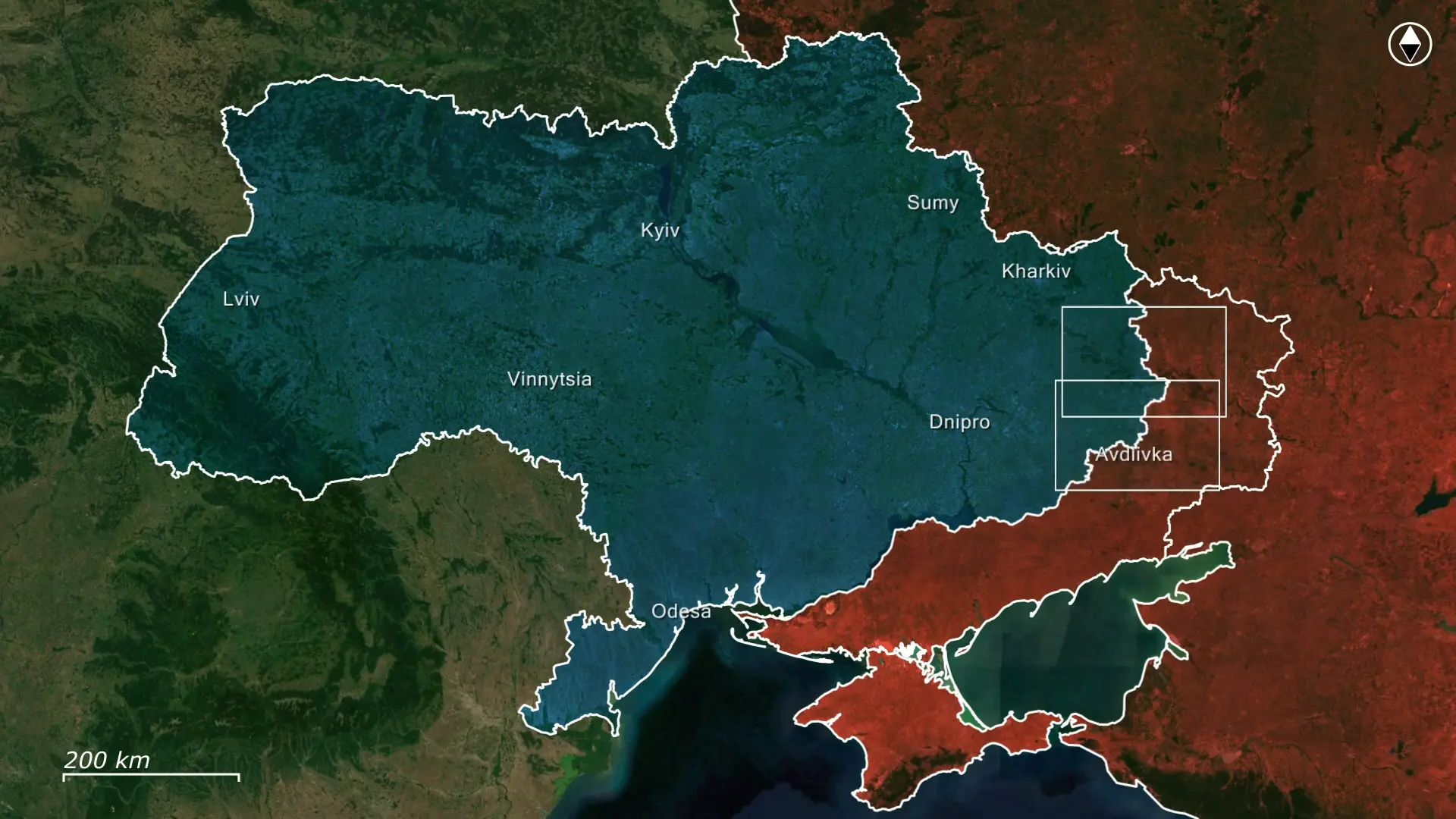Today, there is interesting news from the Kursk direction.
Here, the Russian military’s attempt to counter Ukraine’s advance towards Bolshoye Soldatskoye turned into a slaughter due to poor planning and disastrous miscalculations. Russian forces’ desperation to stem the Ukrainian bulge in the east has led them to rush in their soldiers in suicidal assaults, overlooking a crucial detail in choosing the wrong camouflage, which Ukrainians exploited with deadly efficiency.

Russian forces’ primary objective is to erode Ukraine’s foothold around Berdin, fearing it could become a springboard for further advances toward Bolshoye Soldatskoye. Holding this village is critical for Russia, as its loss would negate hard-fought gains west of Malaya Loknya, which were achieved at the cost of thousands of casualties. If Ukraine secures and expands its position toward Bolshoye Soldatskoye, Russia will be forced to divert significant reinforcements, which are unavailable due to the mounting losses. With another Ukrainian bulge in the region deemed unacceptable, Russia has shifted its focus to Russkoye Porechnoye, a small but strategically vital village along a key supply route, which could serve as a staging ground for future Ukrainian offensives.


To counter Ukraine’s movements, Russian forces redeployed troops from the western part of the salient, partially sacrificing their offensive there. With these reinforcements, they launched a series of infantry assaults to overwhelm Ukrainian positions with sheer numbers, a tactical advantage the Russians still possess for the time being. The reliance on mass assaults in Russian doctrine, often with minimal coordination and outdated tactics, has been costly but occasionally effective. Mass infantry assaults require a lot of men, which means that last-minute changes are unfeasible on such a large scale. This led to the Russian approach suffering from an unexpected major vulnerability - the rapidly changing weather conditions in the Kursk region. One moment, the battlefield is covered in snow; the next, the ground is bare and muddy. Ukrainian forces exploited this unpredictability, turning Russia’s poor camouflage decisions into a death sentence.


The first wave of Russian attackers stormed Ukrainian positions on snow-covered terrain without winter camouflage, making them easy targets for Ukrainian artillery, drones, and FPV kamikaze strikes. As footage from the battlefield shows, the result was fields littered with Russian corpses, struck down in open ground with little to zero cover.


Realizing their mistake, Russian commanders issued white camouflage gear to their troops for the next assault. However, the snow unexpectedly melted, leaving them dressed in all white, in stark contrast to the dark, muddy terrain. This made them even more visible, leading to another massacre as Ukrainian forces rained down artillery fire and drone strikes, decimating entire Russian assault groups.


Russian officers, desperate for progress, threw North Korean forces into battle in large formations of 20 to 100 soldiers, particularly in night assaults. The assumption was that attacking under the cover of darkness would improve their chances of breaking through Ukrainian defenses en masse. However, Ukraine had recently received advanced ENVG-B night vision goggles, allowing its troops to spot enemy movements with extreme clarity, even in total darkness, fog, and snowstorms. This technology marked enemy silhouettes, giving Ukrainian forces a massive advantage in night combat. As a result, huge portions of the North Korean forces were destroyed before they even reached Ukrainian positions.



Another wave of North Korean soldiers was sent during the day, with geolocated footage revealing shocking images, like those seen during the Korean War 70 years ago, with large hordes attacking under heavy artillery shelling. Those who survived established some presence at Russkoye Porechnoye, but only at the cost of staggering losses. Once in the village, they faced relentless Ukrainian artillery and drone strikes, forcing many to either retreat or die in place.


Overall, the latest developments confirm that Ukraine’s Berdin operation has had both an immediate and strategic impact. Ukraine has successfully thinned enemy lines by forcing Russia to redirect troops from the western Kursk salient and relieving the Russian pressure on Malaya Loknya. As a result, Russia’s offensive on the western front has lost momentum, likely due to depleted reserves and logistical strain. Despite Russians gaining some ground in Russkoye Porechnoye, the redirection of Russian forces means that Malaya Loknya will remain firmly under Ukrainian control, highlighting the failure of Russia’s costly mass infantry assaults to achieve any meaningful gains.









.jpg)








Comments